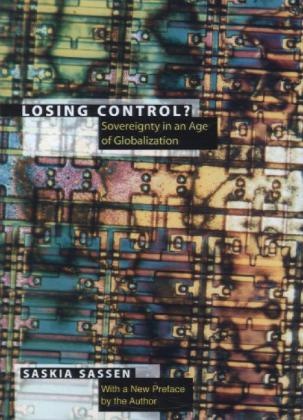Read more
The past decade has seen great changes in the way business is transacted across national borders. Because of unprecedented advances in telecommunication and computer networks, money is transferred in electronic space. U.S. firms such as Ford, IBM, and Exxon now employ well over fifty percent of their workers overseas, rankling both domestic workers who argue that jobs are being exported while unemployment soars at home and activists who contend that wealthy corporations are exploiting low-wage workers in Third World nations. And as immigration levels soar, the very concept of citizenship has moved to the top of political agendas around the world. What determines the flow of labor and capital in this new global information economy? Who has the capacity to coordinate this new system, to create a measure of order? And what happens to territoriality and sovereignty, two fundamental principles of the modern state? Losing Control? is a major addition to our understanding of these questions.
List of contents
Preface to the Paperback Edition
Acknowledgments
Introduction
1. The State and the New Geography of Power
2. On Economic Citizenship
3. Immigration Tests the New Order
Notes
Bibliography
Index
About the author
Saskia Sassen, geboren 1949, ist Professorin für Soziologie an der Columbia University. Ihre Bücher sind in mehr als 20 Sprachen übersetzt worden. Für ihr Werk hat sie zahlreiche Preise erhalten, u.a. 2013 den Prinz-von-Asturien-Preis für Sozialwissenschaften. Sie ist Mitglied im Club of Rome und wurde von dem politischen Magazin "Foreign Policy" in die Top-100-Liste Globaler Denker aufgenommen.
Summary
What determines the flow of labor and capital in this new global information economy?
Report
"Sassen is particularly concerned with the transformation wrought by globalization on the national state and its basic attributes: sovereignty, exclusive territoriality, and citizenship. She does a fine job of outlining the positive and negative aspects of this process." - World Affairs

